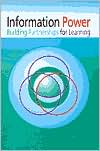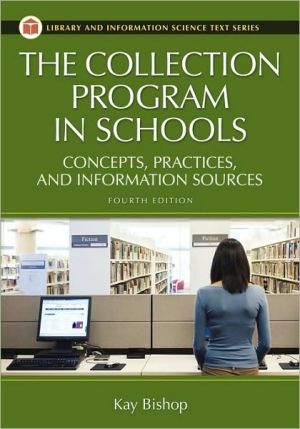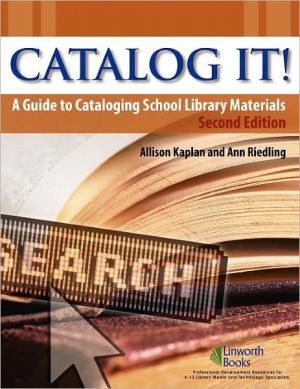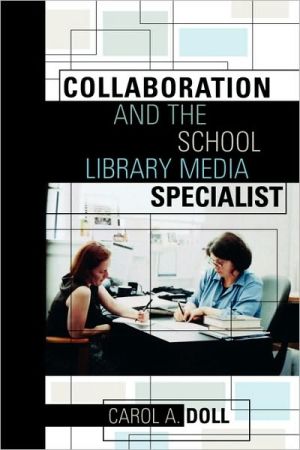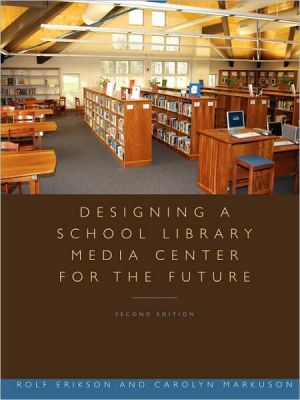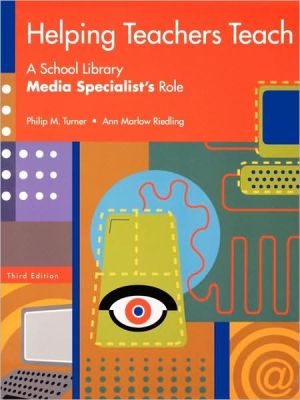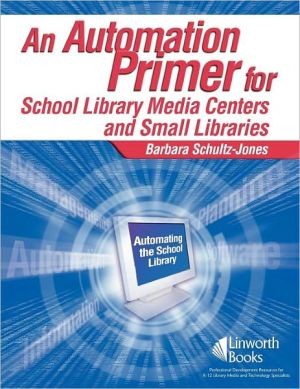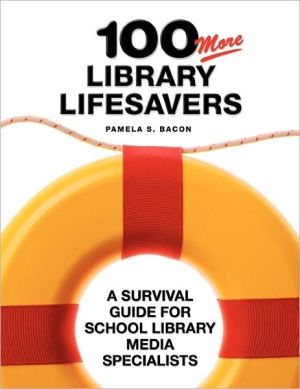Information Power: Building Partnerships for Learning
An immediate and ongoing bestseller, Information Power includes the standards that will help students become skillful producers and consumers of information along with the guidelines and principles that will help you create a dynamic, student-centered program.
Search in google:
An immediate and ongoing bestseller, Information Power includes the standards that will help students become skillful producers and consumers of information along with the guidelines and principles that will help you create a dynamic, student-centered program. VOYA Information Power 1988 (IP1) is, indeed, guidelines for school library media programs, full of job descriptions, room sizes and locations, and numbers of books and media essential for an outstanding library media program. Information Power 1998 (IP2) moves out to reach the education community, building partnerships for learning among teachers and administrators, as well as students and parents. It is an exciting document to read. To librarians, who know that the library media center has always been the center of information access instruction, IP2 affirms their position at the center of the information revolution. The leader-librarian described in IP1 is, in IP2, central to collaboration among learners, both faculty and students. It is through the library that they learn the information-seeking strategies and information evaluation skills essential to slogging through the morass of data dumped on them not only by Internet search engines, but also by publishing houses cranking out histories of today's events today. Every person in the school building must learn how to pick out the bits of information she or he needs. Librarians have always taught learners how to gather and use information to produce the outcome they desire. IP2 provides the goals and supporting arguments for the library as the center of the learning community. The annotated bibliographies at the end of each section provide the research ammunition. The IP2 librarian is an instructional leader, a collaborator and teacher, a program facilitator, a curious learner, and an administrator of a program that is an effective force in the school. This powerful publication must be in every school library media center and should be in the hands of every school administrator. It is not just about reading and searching strategies; it is about authentic and exciting learning. Read it cover to cover, quote it in memos, repeat its message in budget requests, put the information literacy standards up on walls around the school and let them inspire teaching and learning at your school. Index. Illus. Photos. Biblio. Appendix.
PrefaceIntroductionPt. 1Information Literacy Standards for Student LearningCh. 1The Vision1Ch. 2Information Literacy Standards for Student Learning8Pt. 2Building Partnerships for LearningCh. 3Collaboration, Leadership, and Technology47Ch. 4Learning and Teaching58Ch. 5Information Access and Delivery83Ch. 6Program Administration100Ch. 7Connections to the Learning Community122Appendix ALibrary Power137Appendix BICONnect148Appendix CStatements and Policies151ALA Library Bill of Rights152ALA Access to Resources and Services in the School Library Media Program153ALA Confidentiality of Library Records155ALA The Freedom to Read156ALA Access to Electronic Information, Services, and Networks162AECT Code of Ethics166AECT Statement on Intellectual Freedom169Appendix DNSSE Schoolwide Goals for Student Learning171Appendix EStudent Performance Assessment173Appendix FContributors183Index
\ VOYA\ - Lynne Hawkins\ Information Power 1988 (IP1) is, indeed, guidelines for school library media programs, full of job descriptions, room sizes and locations, and numbers of books and media essential for an outstanding library media program. Information Power 1998 (IP2) moves out to reach the education community, building partnerships for learning among teachers and administrators, as well as students and parents. It is an exciting document to read. To librarians, who know that the library media center has always been the center of information access instruction, IP2 affirms their position at the center of the information revolution. The leader-librarian described in IP1 is, in IP2, central to collaboration among learners, both faculty and students. It is through the library that they learn the information-seeking strategies and information evaluation skills essential to slogging through the morass of data dumped on them not only by Internet search engines, but also by publishing houses cranking out histories of today's events today. Every person in the school building must learn how to pick out the bits of information she or he needs. Librarians have always taught learners how to gather and use information to produce the outcome they desire. IP2 provides the goals and supporting arguments for the library as the center of the learning community. The annotated bibliographies at the end of each section provide the research ammunition. The IP2 librarian is an instructional leader, a collaborator and teacher, a program facilitator, a curious learner, and an administrator of a program that is an effective force in the school. This powerful publication must be in every school library media center and should be in the hands of every school administrator. It is not just about reading and searching strategies; it is about authentic and exciting learning. Read it cover to cover, quote it in memos, repeat its message in budget requests, put the information literacy standards up on walls around the school and let them inspire teaching and learning at your school. Index. Illus. Photos. Biblio. Appendix.\ \ \ \ \ BooknewsPresents guidelines for fostering improvement in school library media programs and strategies for creating a community of lifelong learners. Details information literacy standards for student learning, and discusses technology, information access and delivery, learning and teaching, and program administration. Contains six appendices of policies and standards. For school library media specialists. Annotation c. by Book News, Inc., Portland, Or.\ \
